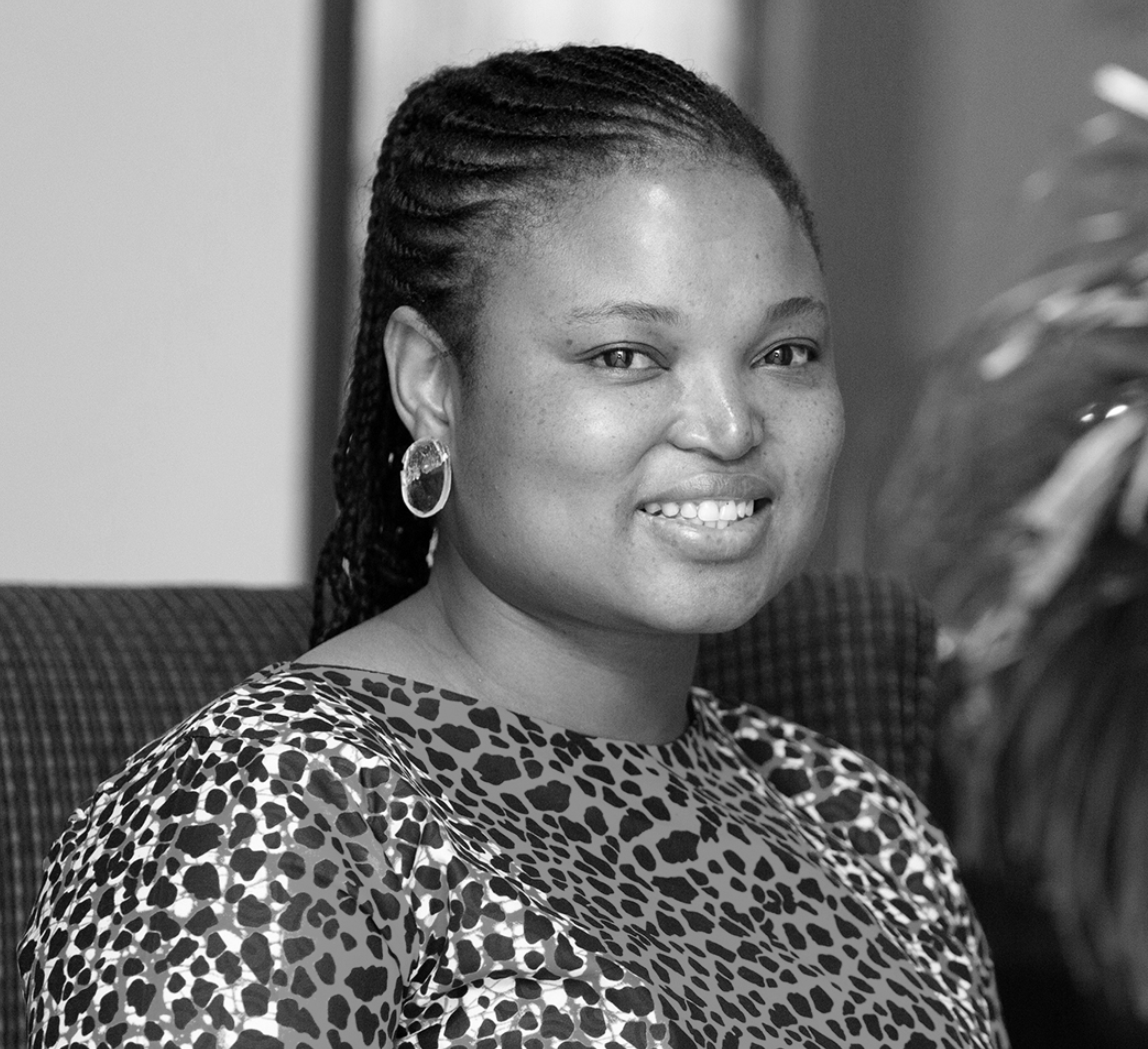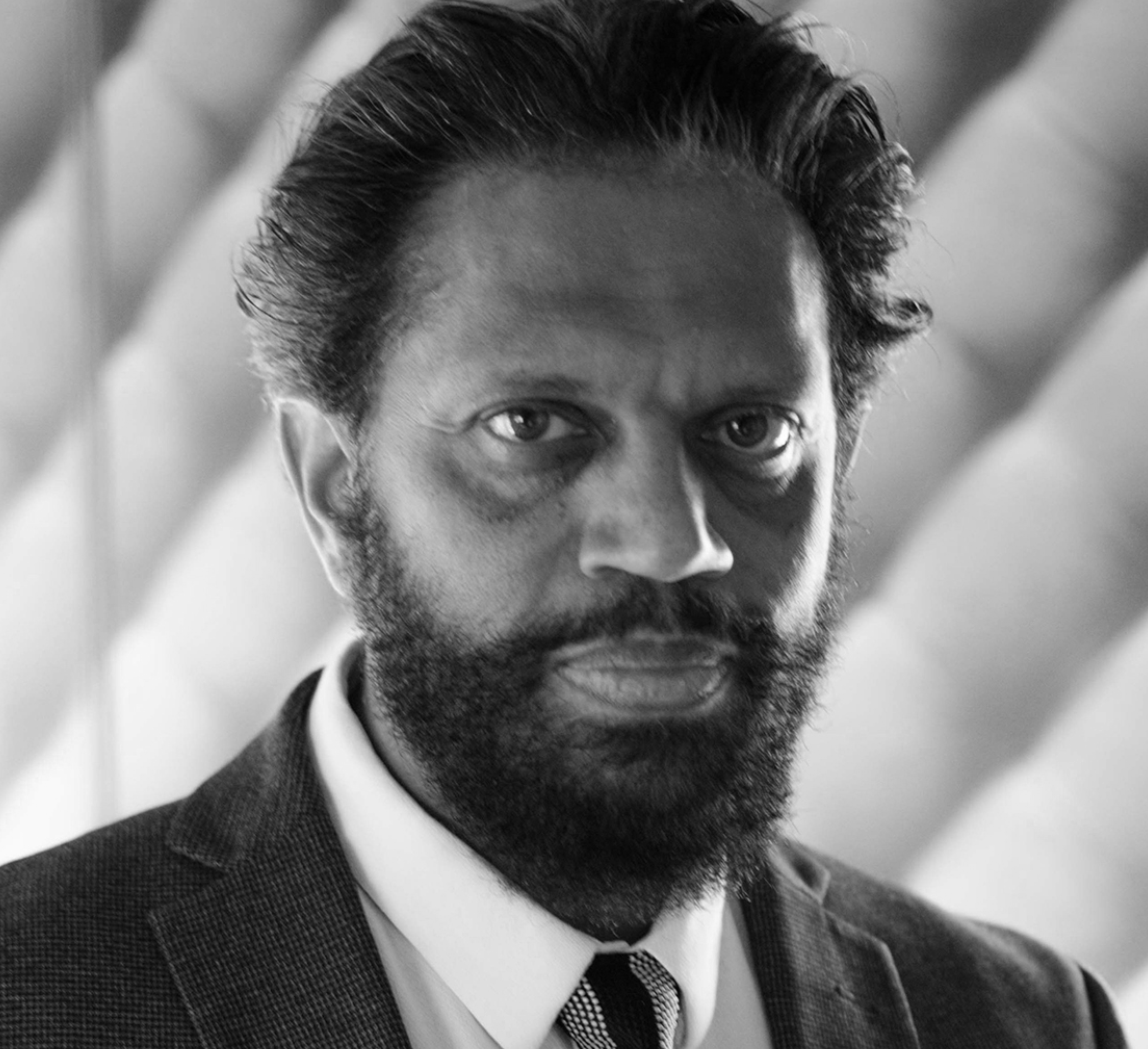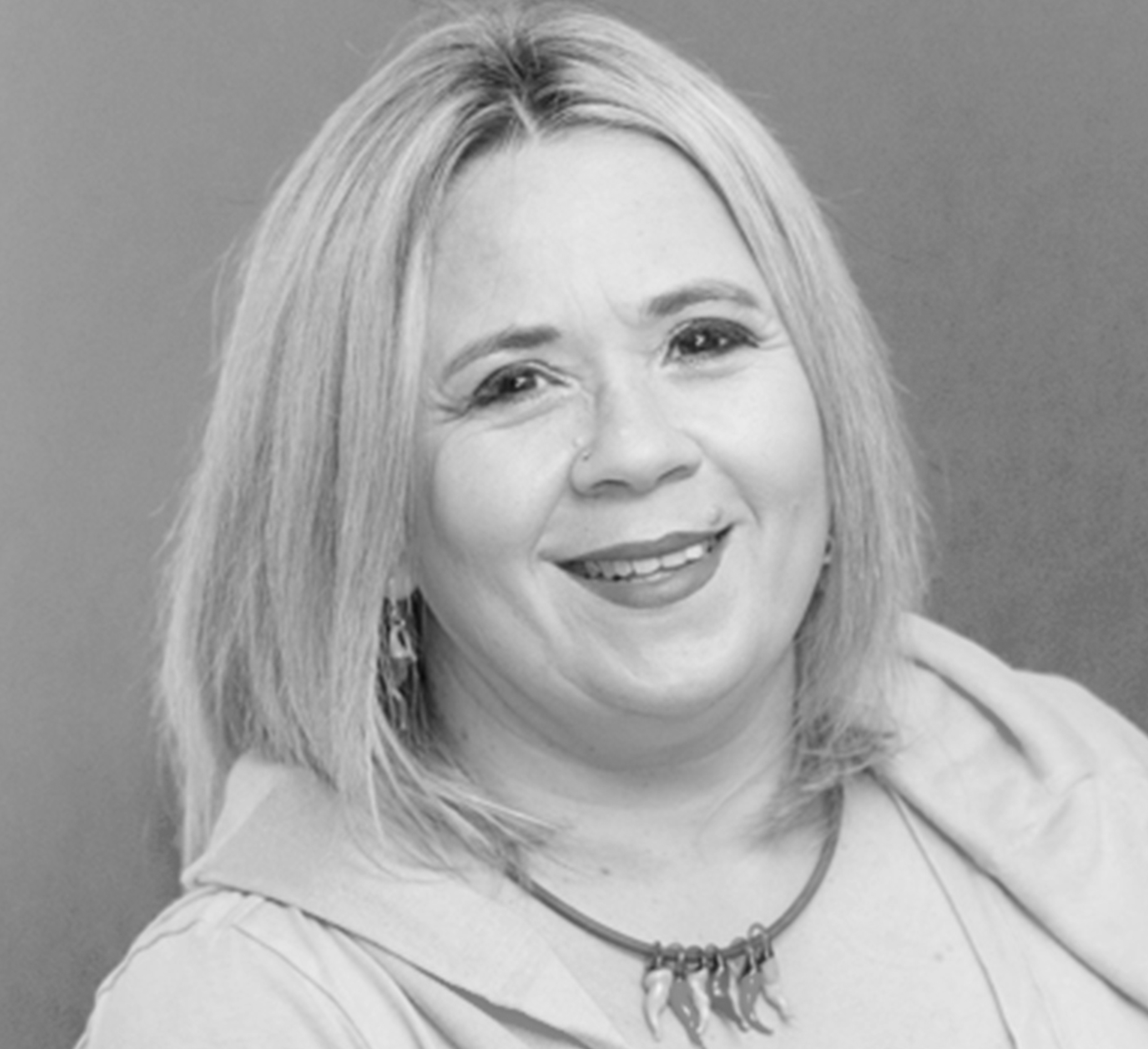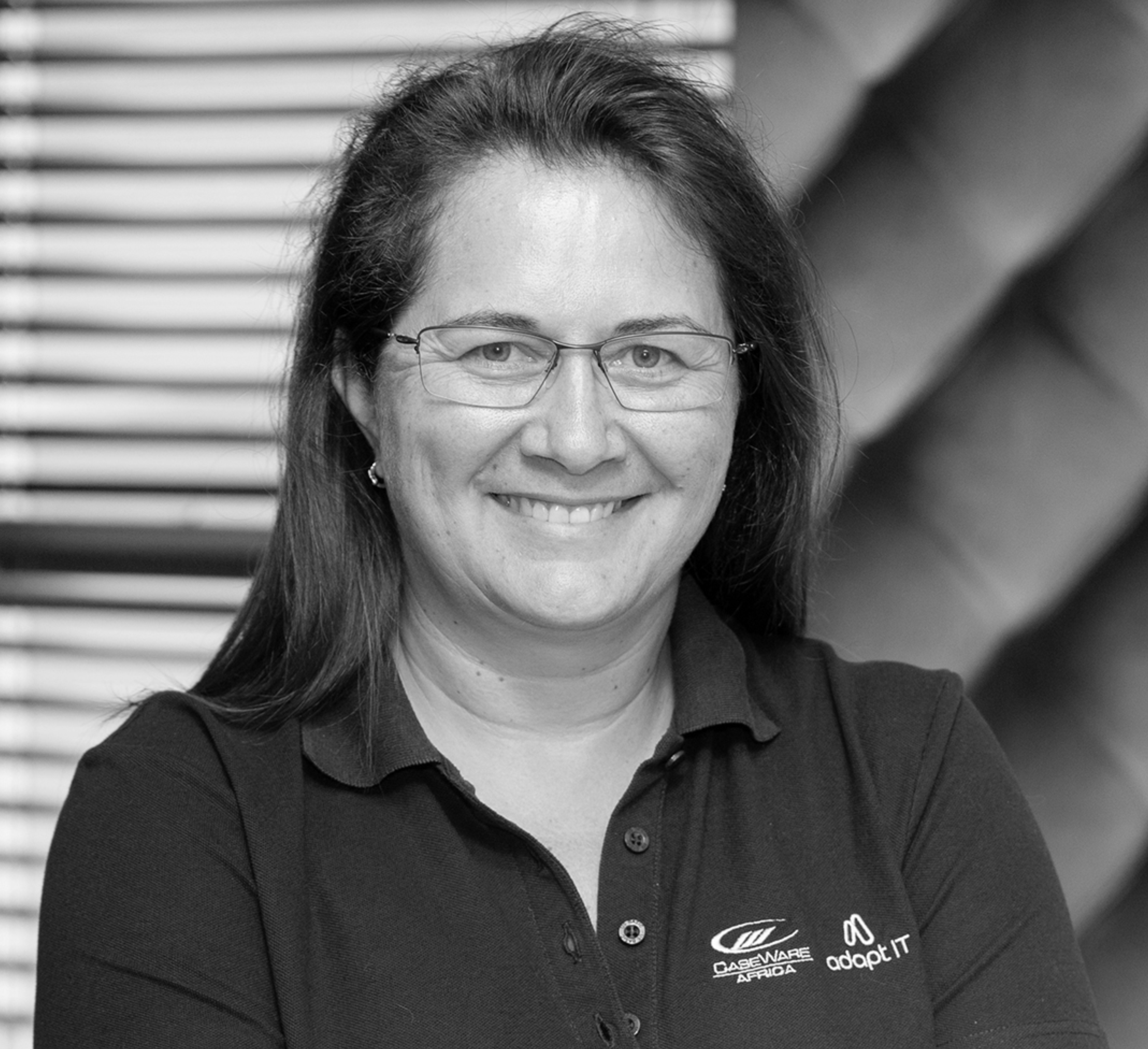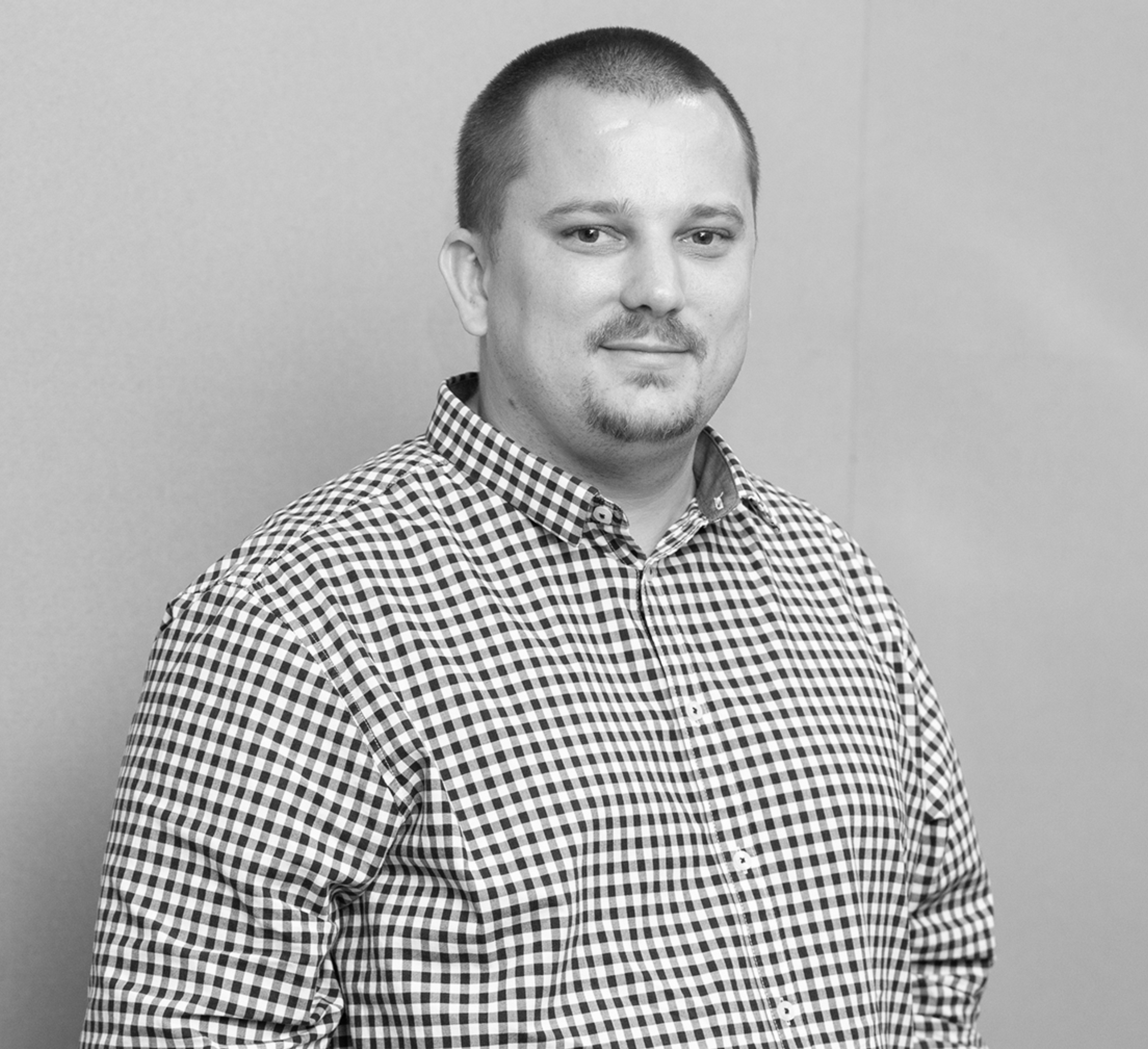42: Nonhlanhla Mona
Chief Financial Officer – ETDP SETA
With 11 000 bursaries issued each year, CFO of the Education, Training and Development Practices SETA, Nonhlanhla Mona, is at the forefront of closing the critical skills gap in SA.

Obtain a Certified Financial Officer CFO (SA) designation
This really is the Formula 1 of accounting designations. The CFO designation is internationally recognised and validates the years of toil and ingenuity it takes to reach to the top of your field. You’ll be part of an exclusive and powerful network of CFOs and finance executives.
As a CFO (SA) you get to share in a wide range of benefits. You gain status as an international finance executive and achieve your listing in the official CFO Directory. You will receive exclusive invitations to the CFO Talks events and get a chance to connect with knowledgeable thought leaders within the CFO community, covering all issues affecting the CFO including business, social, technical and global issues.
For more information go to: https://dev06.saiba.org.za/cfo-sa-designation/
CIARAN RYAN: This is CFO Talks and I am very happy today to have Nonhlanhla Mona, who is a chartered accountant and she is chief financial officer at the higher education and training SETA. For those who are not South Africans, a SETA is a sector body that collects payroll levies from different companies and is there to improve the skills in that particular sector. Nonhlanhla prior to that was the acting CFO at the Public Protector and has also held senior positions at Dell, EMC and the Central Energy Fund. She controls the internal and external auditing, financial accounting and reporting, taxation, and project management at the higher education and training SETA. Welcome, Nonhlanhla.
NONHLANHLA MONA: Thank you for the opportunity to have me here this morning at this interview.
CIARAN RYAN: It’s great to have you here, tell us a little bit about the activities of the Education, Training and Development Practices SETA.
NONHLANHLA MONA: Our SETA is one of 21 SETAs in the country, our focus is to address the skills and development within the education training and development sector, we call it the ETDP sector. So in layman’s terms I would say we look at skills development within education, instead of being too fancy with the other words. So we identify what skills gaps there are by using what is stipulated in the National Skills Development Plan. We also do our own research to find out what are the critical skills that our industry or our sector is in need of and we document that in what we call a Sector Skills Plan, and from that we then plan our activities for the year according to the needs we need to address for that particular year. All our training will be focused on what is already identified in our Sector Skills Plan, so all our skills programmes for the teachers, for the lecturers, all the bursaries we offer are to purely address the skills that are in need or identified as focus areas within our particular sector. So we offer bursaries, we offer training programmes for our employees with the sector and other workers who may not necessarily be directly linked to teaching. We also offer programmes to address the unemployed people in the country who may be interested in further skills development in our sector and with that we also offer internships for those who have already graduated, and we also offer learnerships for matriculants who may not have opportunities but who are willing and interested in our sector, and we develop them in the form of a learnership. That is the high level of what we do then as an ETDP SETA where I am currently the chief financial officer.
CIARAN RYAN: Right, I think for people who are not from South Africa, we should probably explain that SETA stands for Sector Education Training Authority.
NONHLANHLA MONA: Yes.
Our reach is so huge that I cannot put it in exact numbers
CIARAN RYAN: As you said, there are 21 of them. Do you have any idea how many people are impacted by the Education, Training and Development Practices SETA, how many people get bursaries, how many teachers are trained per year, any figures like that you can give us?
NONHLANHLA MONA: Our reach is so huge that I cannot put it in exact numbers, but I can give you high level for an example, we do offer about 1500 bursaries just to unemployed youth. Within our plans we offer quite a lot of bursaries to teachers and workers within our sector, we are talking 11 000 in a year, depending on, of course, how much we have financially to support those initiatives. We impact quite a lot of people in the form of the internships that we offer through our offices directly and also the Department of Education, and also our various constituencies that we serve, partnerships that we’ve formed and other special projects that we run as a SETA. So the numbers are quite large, I understand we are a country of about 56-odd million people, so when I talk about 11 000 you might think it’s very small but I believe that from just the financial resources we have and those imperatives that we have identified, I think we are making a huge enough impact in our ETDP sector.
CIARAN RYAN: If I remember correctly, I think there’s about 20 million children in school in South Africa, that’s nearly half the population, which is huge, isn’t it? So it’s quite a job and if one looks at the matric results that came out, is this something that you pay attention to, what is the standard of the academic outcomes and do you then direct your programmes to address any shortcomings that are identified as a result of that?
NONHLANHLA MONA: I think for us we wouldn’t necessarily be directly involved with the matriculants and how they are doing and the standard of education that is coming out of there. That is one of the key focus areas of the Department of Basic Education. However, our focus would be more for matriculants where we talk about the teachers that are producing the class of 2019, for example, do they have the skills to be able to teach maths in the appropriate standards. Looking at the world and where we are going globally, do they have the skills to teach coding, robotics, and where we identify that we don’t have such a skill in the country, then we go and focus our money and muscle into saying let’s train teachers in high schools on how to better deliver a computer literacy class or maybe because we are going forward let’s put more effort into developing teachers who can teach robotics, coding and all of that, or let’s offer training to teachers in maths and science because those are always areas where we have had huge skills shortages, especially in our teacher workforce. So we say let us now channel some money into that and support them and the schools in making sure that they have suitably trained and qualified teachers to deliver the curriculum as stipulated by the department. In so far as the actual results are concerned, then our role would be to fund the students who are coming to us to look for bursaries to study further.
CIARAN RYAN: Okay, give us an idea of what kind of budget do you have per year or let’s say for the last year, what was the size of your budget?
NONHLANHLA MONA: Our SETA is working on a budget of R1.6 billion, you have to keep in mind the fact that the R1.6 billion would be spread amongst our three programmes, one that is mainly the biggest one is around skills development, so the training programmes for teachers, for workers within the sector, where we are offering bursaries. The other money would go to where we then legislatively we have to pay back what is called mandatory grants to employers who have contributed to us over the year and they would have to submit what we call WSPs, Workplace Skills Plans, where we have analysed and approved them and they are entitled to a refund, if I may call it that, so we channel some of that budget towards that. Lastly, we have to address issues of quality assurance, where we look at accreditations of programmes, accrediting learning programmes, issuing certificates for those who have successfully completed some of our accredited programmes and just making sure that the work that we do is of the appropriate quality. So we have a mandated responsibility to do that. So that is in a nutshell what we would do with our budget and, of course, some of it would cover our normal administration of the head office and the nine provinces.
CIARAN RYAN: R1.6 billion budget is quite large, does that make you one of the biggest of the SETAs?
NONHLANHLA MONA: No, we are not one of the biggest, but I do think we are part of the top five in terms of a budget perspective.
Growing up with good role models
CIARAN RYAN: All right, I’m quite keen to find out about you and your history, tell us where you grew up, where you went to school, where you studied, how did it all begin?
NONHLANHLA MONA: I was born in a township called KaNyamazane in Nelspruit, Mpumalanga province, I was raised there all my life until I decided to move to greener pastures in Gauteng. So I think for me I was very fortunate to have been born in KaNyamazane, interestingly enough, I think it’s a community of loving people, we had a lot of good role models while growing up, so I am very grateful to have been born in that township and more specifically in the family that I was sent to be born into, the Mona family. I am very fortunate to have attended Thandulwazi Primary School, some of our community leaders were like our school principal, some of our teachers were very strong community leaders, so we were growing up under quite a lot of positive role models. Then after I completed primary school, I had an opportunity to move to Lowveld High School and I think for me that is where I was really pushed to say get out of your shell…
CIARAN RYAN: That’s moving from the township to the city?
NONHLANHLA MONA: Yes, back in those days…
CIARAN RYAN: But that’s in Nelspruit too?
NONHLANHLA MONA: Yes, it’s still in Nelspruit, so there they really pushed me out of my shell to say go out there and conquer the world. After high school I then completed my undergraduate studies at the University of Pretoria and I completed my honours CTA through UNISA, now studying part-time.
CIARAN RYAN: What attracted you to accounting particularly?
NONHLANHLA MONA: Accounting, my story of accounting is a very interesting one, I was one day at a bank, I think I could have been about six years old, with my mom, back then you used to get a pay cheque, so there was no EFT transfers of the salary. So she would go and cash her cheque and in that process I saw the bank teller counting the money and I thought to myself, I think I really do want to work with money because in my mind, as a six year old, I thought that people who work with money must be earning a lot of money. Later on in life somebody said no man, you are playing, tellers don’t get paid that much, if you really want to work with big money and probably earn a decent wage, then maybe you should try and pursue a career in accounting, and one of our family friends one day, I could have been about ten, said to me ja, actually the people with real money are called chartered accountants…
CIARAN RYAN: [Laughing]
NONHLANHLA MONA: So I think I fell in love with the concept and I thought this is what I want to do for a living. But, funnily enough, over the years I have never thought that I’ve made the wrong decision. So I think I am at the right place, it’s just a matter of how do I make an impact.
CIARAN RYAN: Right, so what is it about the accounting profession that you like, that you say you didn’t make the wrong decision, you chose the right career, there must be something about it that makes you come to that conclusion?
NONHLANHLA MONA: I think it’s endless opportunities and possibilities, and obviously the impact that you can make. I know a lot of people just think you are just a numbers person, you’re calculating, you’re reporting, but there’s a lot of responsibility that comes with being in finance, as a finance manager, as an accountant and more especially when you are a CFO, you are going to make decisions that are going to impact a lot of lives by just approving budget. You might just think it’s R100 000 but it’s R100 000 to fund Sipho from Soweto to study to become an engineer. Those are the things that really excite me about where I am as an accountant and more especially as a CFO because now, I get to drive decisions that have a direct impact to service delivery and a direct impact to people’s lives. That’s why I say I am at the right place, I truly made the right decision.
CIARAN RYAN: That’s beautiful, so let’s continue, you studied at the University of Pretoria, continue the story from there.
NONHLANHLA MONA: Yes, that’s where I completed my undergraduate, then I moved onto UNISA to complete my honours, my post-graduate degree in accounting and CTA, Certificate in the Theory of Accounting, which is a prerequisite before you can write the SAICA board exams.
CIARAN RYAN: The South African Institute of Chartered Accountants boardeExam.
NONHLANHLA MONA: Yes, in fact, I want to say good luck to everyone who is writing that exam today.
CIARAN RYAN: Oh, is it today?
NONHLANHLA MONA: Yes, the first part of that board exam is being written today. During that time I completed my training at Deloitte, it was then at the Pretoria office, I know now they are going to move to Waterfall and everyone is going to be together, but the Pretoria office holds a very sentimental place for me because professionally that’s where I was trained to be the professional that I am today. I believe the leadership there really had something going on in terms of the training programme and the opportunities they afforded us as trainees for those three years that we were under their leadership. Even though now there are all these scandals, I just wanted to say I still very much believe in the concept they had for training and developing professionals in the country and I really pay special tribute to them because I wouldn’t be here today if it wasn’t for the training and guidance and mentoring that I received from some of those managers and partners at Deloitte.
Financial misconduct within SETAs
CIARAN RYAN: That’s a good word for Deloitte. Yes and, of course, the scandals refer to particular individuals and segments within the industry, and it’s not just Deloitte. Let’s just continue on that theme, there’s been a lot of talk in the press about the SETAs themselves and some of them seem to be quite dysfunctional, poor financial management being one of the problems that’s been reported, is this why you were brought into the Education, Training and Development Practices SETA and what’s been your experience, tell us a little bit about your impression of the financial state of the SETAs.
NONHLANHLA MONA: I think yes there was a lot of media coverage about the financial misconduct and all of that within the SETAs and, again, like you have stated earlier, it’s just a few individuals here and there who saw opportunities and misused their positions that they have been put into. It’s not the reason why I was brought in, I responded to a newspaper advert when they were looking for a CFO. I went through the rigorous interview process with a panel of board members, representatives from the unions, the employer representatives constituencies were there to make sure that they find the person who is fit enough to hold the office of the CFO of the SETA and who can do the job appropriately. So I think what stood out for me was that they were looking for a person with ethical leadership, with integrity, accountability and all of that. So I think they found that through their interactions with me, then I would be the appropriate person to take leadership in that position. I believe there’s a lot of work being done even from the Department of Higher Education to try and root out all the corruption within the SETA, where there have been cases identified, and I think from my interactions with the other SETAs there’s been a lot of recruitment of people with appropriate experience and skills into those offices where there were vacancies, more especially at the CEO and CFO level and senior management. So I think there’s really been a positive shift to move from whatever was happening to say we’ve got the right people now, let us give them a chance to then do what they need to do and clean up where there was issues and move forward as a sector that’s being run transparently and truly fulfilling our core mandate of developing skills within the sectors that are identified in South Africa. I think there has been that positive shift and I can see it even in our interactions and some of the feedback we’ve received, there’s greater accountability and reporting responsibilities, and there’s really in South Africa right now no room for any one person who is put in a position of leadership and influence to do wrong things and get away with it.
CIARAN RYAN: Hear, hear, I agree with you there. How do you measure your success, what are your key performance indicators, I’m talking about the finance office in the SETA?
NONHLANHLA MONA: Ours is to manage the funds of the SETA in line with, obviously, first, what is being regulated in the PFMA, Public Finance Management Act, together with the Treasury Regulations that obviously operationalise what’s in the Public Finance Management Act, we need to disperse payments to service providers within the allocated times. Also, one of our core priorities is to make sure that all the wish lists that have been identified in our sector’s skills plans, which has then been drilled down to our annual performance plans, that we have appropriate budget for those initiatives for the upcoming year, and also planning for the five-year outlook, and making sure that whatever it is that we wish to do in addressing skills development in the country, that we have the funds for it. So that comes with the responsibility of also making sure that the funds that we’re not currently using, that I am appropriately investing it in a good investment tool with appropriate rates of return, which will then again go back towards skills development in the country. So my role is to really look after this R1 billion in the best possible way that I can and making sure that it’s going towards all the initiatives that have been identified for the year and obviously making sure that everyone who is doing work with the SETA is being paid on time, and, obviously to keep good relations with all our stakeholders, service providers, governance bodies, there are a lot of them but just to make sure that we from the finance office have a good standing with everyone that we impact.
CIARAN RYAN: On those key performance indicators, are you measuring up, are you achieving your targets?
NONHLANHLA MONA: I think we are, we’re paying, so nobody is really complaining, unless there’s an issue, everyone is funded, so nobody is complaining. When we plan we make sure that we are able to move our funds around to make sure that we can channel it to critical areas if the need arises. So I think we are measuring up.
CIARAN RYAN: So you have a treasury function as well, you’re managing these funds, you’re obviously getting in these big lump sums of money, you’ve got to invest them so that they earn the best rate of return. Do you have an internal function for that, or do you outsource that?
NONHLANHLA MONA: Ours is not such a huge function because I think to some point we are not aggressive in our investment. So how we manage the funds is regulated, so we don’t need a whole separate office for that, we are running it from my office, simply because we invest and then we withdraw, so it doesn’t become cumbersome…
CIARAN RYAN: So it’s a money market type of operation.
NONHLANHLA MONA: Ja, so we do it ourselves internally in-house.
Standards of governance improving
CIARAN RYAN: Okay, do you get a sense that the financial management in the public sector is being taken more seriously than was the case in the past? You’ve already mentioned that some of the personnel changes that are happening within the SETAs and I think that’s reflective of what’s happening in the public sector generally that there’s a better quality of financial management that has been brought in because of the corruption we’ve experienced over the last decade. Is that your sense that the standards of governance have improved because of this?
NONHLANHLA MONA: I think yes I do agree, there’s always been the governing legislation but, however, now what we have been challenged to do as professionals within finance, more especially within the public sector, is to become more accountable for our day-to-day decisions that we take and the day-to-day actions. So I don’t believe that there was never a time when people were held accountable, I think now we just know more about it and when you know more it increases awareness, and for every person who works within public finance you start to become more aware of what not to do because when you do that those are the consequences of your actions and you’re going to have to face the music. I think it then makes you become even more alert, more assertive in what you do because you know this is what has been regulated and I have to do it with an intention to do it right all the time because we are being challenged to say be accountable for the work that you do on a day-to-day basis. It’s not just coming from the bodies that are there like SAICA, IRBA and so on, it’s coming from the public, which is what I like more about it because it’s the people who we serve who are holding us accountable to say we can no longer tolerate you just sitting and doing nothing in your positions, we are challenging you to say deliver on the services that you are put in place to deliver as a CFO of a SETA, for example.
CIARAN RYAN: Give us an idea, how big is your team that you work with.
NONHLANHLA MONA: My team, I look after traditional finance and also the supply chain division, so that’s a complement of about 25 staff members.
CIARAN RYAN: Do you have an internal audit team?
NONHLANHLA MONA: No, at the moment we don’t, we are outsourcing the function.
CIARAN RYAN: Oh, okay, and who is your external auditor?
NONHLANHLA MONA: We are audited by the Auditor General of South Africa.
CIARAN RYAN: Okay, that’s a pretty tough one. Are you getting clean audits?
NONHLANHLA MONA: We actually had for a number of years, it’s just last year we regressed, not regressed, we had an unqualified audit, which is the right audit opinion to have. We just had some material findings, which then kicked us out of the clean audit status.
CIARAN RYAN: What were those findings?
NONHLANHLA MONA: It had to do with adjustments into prior figures, where there were errors discovered by the auditors in last year’s audit. So with that, because of the amount that was involved we could no longer maintain the clean audit status. But we still have an unqualified audit.
CIARAN RYAN: Right, so the plan this year, no doubt, is to fix whatever needed to be fixed and get the clean audit back?
NONHLANHLA MONA: Ja, I think that problem is sorted out.
CIARAN RYAN: It’s solved already, that’s great to hear, where do you spend most of your time, is it on compliance issues, is it on the figures and the management of the money or is it people issues?
NONHLANHLA MONA: I spend a lot of my time on people. In fact, if you didn’t know I was a CFO…
CIARAN RYAN: Let me guess, 80% of your time on people?
NONHLANHLA MONA: Yes.
CIARAN RYAN: That seems to be a common theme with chief financial officers, they spend much more time managing people.
NONHLANHLA MONA: Yes because that’s where your money is, if I can put it that way. If you don’t have the right people and you’re not paying attention to the people who work with you and who work for you, you are never going to succeed.
CIARAN RYAN: We’re running out of time here but I have one or two quick questions that I want to ask you. What do you do in your spare time, do you have a family?
NONHLANHLA MONA: Yes, I do.
CIARAN RYAN: Do you have children?
NONHLANHLA MONA: Yes, I do?
CIARAN RYAN: How many kids?
NONHLANHLA MONA: Two, eight years old and four.
CIARAN RYAN: Boys or girls?
NONHLANHLA MONA: Girls.
CIARAN RYAN: Oh, wow.
NONHLANHLA MONA: So I spend a lot of my time colouring in and chasing after them.
CIARAN RYAN: Okay and what do you do in your spare time?
NONHLANHLA MONA: In my spare time I read a lot.
CIARAN RYAN: What do you like reading?
NONHLANHLA MONA: I read anything and everything, I’ve got my own library at home, I read poems, I read love stories, I read business books, I read magazines, I read on my phone. I like to know what’s going on around me, so I subscribe to a lot of Facebook and Instagram pages with news channels. I don’t watch TV but I read everything I want to know about.
Nothing is a miracle
CIARAN RYAN: One of the things I discovered recently, in fact over the Christmas period, was that Google Books has all of these free online books, so you can go back and read books that were written 150 years ago, these would be books where the copyright has expired and there’s some amazing stuff there online that you can read. So you don’t even have to go to the bookstore anymore and spend money if you can read it on your Kindle or your computer screen. What books would you recommend for people, something that really inspired you and changed your life or your outlook?
NONHLANHLA MONA: I think for me the one book that really stood out for me is Malcolm Gladwell, Outliers. I don’t know how many people have bought that book as a gift and they’ve come back and said wow, and they have read it over and over again.
CIARAN RYAN: What did you get out of it?
NONHLANHLA MONA: It just taught me that nothing is a miracle because we were raised to be believe that things are miraculous, that they just drop from the sky. From that book I gathered that you work for everything that you achieve in life and you have to put in the time and the hours to achieve that greatness that you aspire to be. That book taught me really the concept of working and working hard and working with the focus of achieving my goal and my dream. Ever since reading that book, I think with anything I want to do, I just go back to say am I even working in the right direction towards what I want to get to and, honestly, thinking back to assess my progress and to say, okay, now I think I am really investing time in the right activities that are going to get me to my desired outcome. So it just teaches you the power of internal greatness, focus and also ultimately believing in the thing that you want to achieve so bad that you don’t give up on it but you invest all your energy and your resources in it because when it happens everyone will think it’s a miracle but actually it’s all the hours of your hard work.
CIARAN RYAN: In other words, it was pre-planned or pre-ordained. So that’s Malcolm Gladwell, Outliers, that’s a book that you recommend.
NONHLANHLA MONA: Yes.
CIARAN RYAN: Nonhlanhla Mona, we are going to have to leave it there, it’s been fascinating talking to you, thanks very much for coming in and stay in touch and come back again.
NONHLANHLA MONA: I will certainly do that, thank you so much, it’s been a beautiful morning.
CIARAN RYAN: Thank you.

